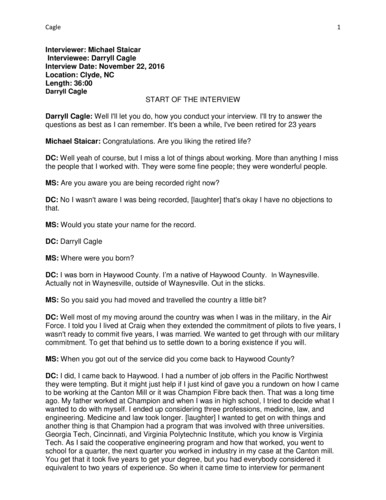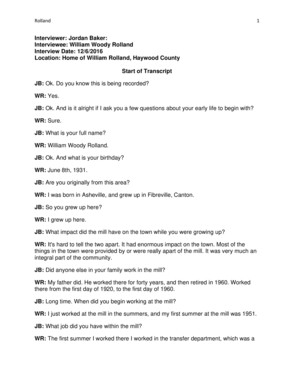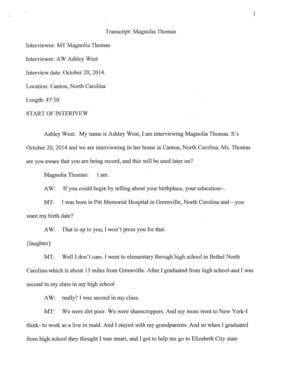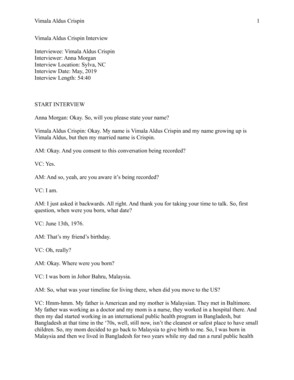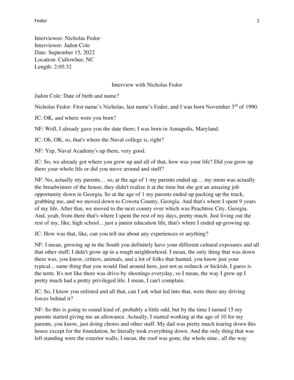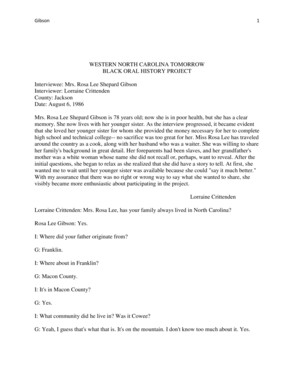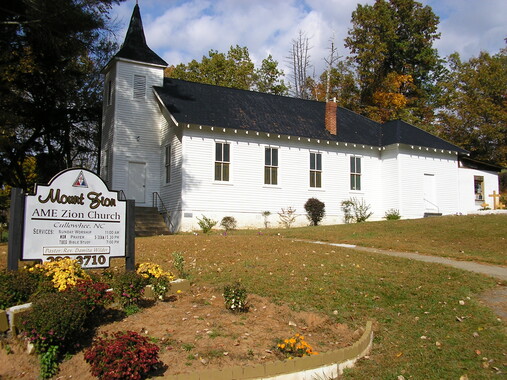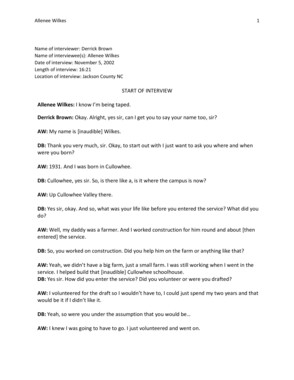Western Carolina University (20)
View all
- Canton Champion Fibre Company (2308)
- Cherokee Traditions (293)
- Civil War in Southern Appalachia (165)
- Craft Revival (1942)
- Great Smoky Mountains - A Park for America (2767)
- Highlights from Western Carolina University (430)
- Horace Kephart (941)
- Journeys Through Jackson (154)
- LGBTQIA+ Archive of Jackson County (19)
- Oral Histories of Western North Carolina (314)
- Picturing Appalachia (6679)
- Stories of Mountain Folk (413)
- Travel Western North Carolina (160)
- Western Carolina University Fine Art Museum Vitreograph Collection (129)
- Western Carolina University Herbarium (92)
- Western Carolina University: Making Memories (708)
- Western Carolina University Publications (2283)
- Western Carolina University Restricted Electronic Theses and Dissertations (146)
- Western North Carolina Regional Maps (71)
- World War II in Southern Appalachia (131)
University of North Carolina Asheville (6)
View all
- 1700s (1)
- 1860s (1)
- 1890s (1)
- 1900s (2)
- 1920s (2)
- 1930s (5)
- 1940s (12)
- 1950s (19)
- 1960s (35)
- 1970s (31)
- 1980s (16)
- 1990s (10)
- 2000s (20)
- 2010s (24)
- 2020s (4)
- 1600s (0)
- 1800s (0)
- 1810s (0)
- 1820s (0)
- 1830s (0)
- 1840s (0)
- 1850s (0)
- 1870s (0)
- 1880s (0)
- 1910s (0)
- Appalachian Region, Southern (15)
- Asheville (N.C.) (11)
- Avery County (N.C.) (1)
- Buncombe County (N.C.) (55)
- Cherokee County (N.C.) (17)
- Clay County (N.C.) (2)
- Graham County (N.C.) (15)
- Great Smoky Mountains National Park (N.C. and Tenn.) (1)
- Haywood County (N.C.) (40)
- Henderson County (N.C.) (5)
- Jackson County (N.C.) (131)
- Knox County (Tenn.) (1)
- Macon County (N.C.) (17)
- Madison County (N.C.) (4)
- McDowell County (N.C.) (1)
- Mitchell County (N.C.) (5)
- Polk County (N.C.) (3)
- Qualla Boundary (6)
- Rutherford County (N.C.) (1)
- Swain County (N.C.) (30)
- Watauga County (N.C.) (2)
- Waynesville (N.C.) (1)
- Yancey County (N.C.) (3)
- Blount County (Tenn.) (0)
- Knoxville (Tenn.) (0)
- Lake Santeetlah (N.C.) (0)
- Transylvania County (N.C.) (0)
- Interviews (314)
- Manuscripts (documents) (3)
- Personal Narratives (7)
- Photographs (4)
- Sound Recordings (308)
- Transcripts (216)
- Aerial Photographs (0)
- Aerial Views (0)
- Albums (books) (0)
- Articles (0)
- Artifacts (object Genre) (0)
- Biography (general Genre) (0)
- Cards (information Artifacts) (0)
- Clippings (information Artifacts) (0)
- Crafts (art Genres) (0)
- Depictions (visual Works) (0)
- Design Drawings (0)
- Drawings (visual Works) (0)
- Envelopes (0)
- Facsimiles (reproductions) (0)
- Fiction (general Genre) (0)
- Financial Records (0)
- Fliers (printed Matter) (0)
- Glass Plate Negatives (0)
- Guidebooks (0)
- Internegatives (0)
- Land Surveys (0)
- Letters (correspondence) (0)
- Maps (documents) (0)
- Memorandums (0)
- Minutes (administrative Records) (0)
- Negatives (photographs) (0)
- Newsletters (0)
- Newspapers (0)
- Occupation Currency (0)
- Paintings (visual Works) (0)
- Pen And Ink Drawings (0)
- Periodicals (0)
- Plans (maps) (0)
- Poetry (0)
- Portraits (0)
- Postcards (0)
- Programs (documents) (0)
- Publications (documents) (0)
- Questionnaires (0)
- Scrapbooks (0)
- Sheet Music (0)
- Slides (photographs) (0)
- Specimens (0)
- Speeches (documents) (0)
- Text Messages (0)
- Tintypes (photographs) (0)
- Video Recordings (physical Artifacts) (0)
- Vitreographs (0)
- WCU Mountain Heritage Center Oral Histories (25)
- WCU Oral History Collection - Mountain People, Mountain Lives (71)
- Western North Carolina Tomorrow Black Oral History Project (69)
- A.L. Ensley Collection (0)
- Appalachian Industrial School Records (0)
- Appalachian National Park Association Records (0)
- Axley-Meroney Collection (0)
- Bayard Wootten Photograph Collection (0)
- Bethel Rural Community Organization Collection (0)
- Blumer Collection (0)
- C.W. Slagle Collection (0)
- Canton Area Historical Museum (0)
- Carlos C. Campbell Collection (0)
- Cataloochee History Project (0)
- Cherokee Studies Collection (0)
- Daisy Dame Photograph Album (0)
- Daniel Boone VI Collection (0)
- Doris Ulmann Photograph Collection (0)
- Elizabeth H. Lasley Collection (0)
- Elizabeth Woolworth Szold Fleharty Collection (0)
- Frank Fry Collection (0)
- George Masa Collection (0)
- Gideon Laney Collection (0)
- Hazel Scarborough Collection (0)
- Hiram C. Wilburn Papers (0)
- Historic Photographs Collection (0)
- Horace Kephart Collection (0)
- Humbard Collection (0)
- Hunter and Weaver Families Collection (0)
- I. D. Blumenthal Collection (0)
- Isadora Williams Collection (0)
- Jesse Bryson Stalcup Collection (0)
- Jim Thompson Collection (0)
- John B. Battle Collection (0)
- John C. Campbell Folk School Records (0)
- John Parris Collection (0)
- Judaculla Rock project (0)
- Kelly Bennett Collection (0)
- Love Family Papers (0)
- Major Wiley Parris Civil War Letters (0)
- Map Collection (0)
- McFee-Misemer Civil War Letters (0)
- Mountain Heritage Center Collection (0)
- Norburn - Robertson - Thomson Families Collection (0)
- Pauline Hood Collection (0)
- Pre-Guild Collection (0)
- Qualla Arts and Crafts Mutual Collection (0)
- R.A. Romanes Collection (0)
- Rosser H. Taylor Collection (0)
- Samuel Robert Owens Collection (0)
- Sara Madison Collection (0)
- Sherrill Studio Photo Collection (0)
- Smoky Mountains Hiking Club Collection (0)
- Stories of Mountain Folk - Radio Programs (0)
- The Reporter, Western Carolina University (0)
- Venoy and Elizabeth Reed Collection (0)
- WCU Gender and Sexuality Oral History Project (0)
- WCU Students Newspapers Collection (0)
- William Williams Stringfield Collection (0)
- Zebulon Weaver Collection (0)
- African Americans (97)
- Artisans (5)
- Cherokee pottery (1)
- Cherokee women (1)
- College student newspapers and periodicals (4)
- Education (3)
- Floods (13)
- Folk music (3)
- Great Smoky Mountains National Park (N.C. and Tenn.) (1)
- Hunting (1)
- Mines and mineral resources (2)
- Rural electrification -- North Carolina, Western (2)
- School integration -- Southern States (2)
- Segregation -- North Carolina, Western (5)
- Slavery (5)
- Sports (2)
- Storytelling (3)
- World War, 1939-1945 (3)
- Appalachian Trail (0)
- Cherokee art (0)
- Cherokee artists -- North Carolina (0)
- Cherokee language (0)
- Church buildings (0)
- Civilian Conservation Corps (U.S.) (0)
- Dams (0)
- Dance (0)
- Forced removal, 1813-1903 (0)
- Forest conservation (0)
- Forests and forestry (0)
- Gender nonconformity (0)
- Landscape photography (0)
- Logging (0)
- Maps (0)
- North Carolina -- Maps (0)
- Paper industry (0)
- Postcards (0)
- Pottery (0)
- Railroad trains (0)
- Waterfalls -- Great Smoky Mountains (N.C. and Tenn.) (0)
- Weaving -- Appalachian Region, Southern (0)
- Wood-carving -- Appalachian Region, Southern (0)
- Sound (308)
- StillImage (4)
- Text (219)
- MovingImage (0)
Interview with Darryl Cagle
Item
Item’s are ‘child’ level descriptions to ‘parent’ objects, (e.g. one page of a whole book).
-
-
Cagle 1 Transcript: Darryll Cagle Interviewee: DC Darryll Cagle Interviewer: MS Michael Staicar Interview Date: November 22, 2016 Location: Clyde, NC Length: 36:00 Darryll Cagle START OF THE INTERVIEW Darryll Cagle: Well I'll let you do, how you conduct your interview. I'll try to answer the questions as best as I can remember. It's been a while, I've been retired for 23 years Michael Staicar: Congratulations. Are you liking the retired life? DC: Well yeah of course, but I miss a lot of things about working. More than anything I miss the people that I worked with. They were some fine people; they were wonderful people. MS: Are you aware you are being recorded right now? DC: No I wasn't aware I was being recorded, [laughter] that's okay I have no objections to that. MS: Would you state your name for the record. DC: Darryll Cagle MS: Where were you born? DC: I was born in Haywood County. I’m a native of Haywood County. In Waynesville. Actually not in Waynesville, outside of Waynesville. Out in the sticks. MS: So you said you had moved and travelled the country a little bit? DC: Well most of my moving around the country was when I was in the military, in the Air Force. I told you I lived at Craig when they extended the commitment of pilots to five years, I wasn't ready to commit five years, I was married. We wanted to get through with our military commitment. To get that behind us to settle down to a boring existence if you will. MS: When you got out of the service did you come back to Haywood County? DC: I did, I came back to Haywood. I had a number of job offers in the Pacific Northwest they were tempting. But it might just help if I just kind of gave you a rundown on how I came to be working at the Canton Mill or it was Champion Fibre back then. That was a long time ago. My father worked at Champion and when I was in high school, I tried to decide what I wanted to do with myself. I ended up considering three professions, medicine, law, and engineering. Medicine and law took longer. [laughter] I wanted to get on with things and another thing is that Champion had a program that was involved with three universities. Georgia Tech, Cincinnati, and Virginia Polytechnic Institute, which you know is Virginia Tech. As I said the cooperative engineering program and how that worked, you went to school for a quarter, the next quarter you worked in industry in my case at the Canton mill. You get that it took five years to get your degree, but you had everybody considered it equivalent to Cagle 2 two years of experience. So when it came time to interview for permanent employment you were considered to have two years of experience and that was good. I went to Virginia Tech of course, and I worked alternate quarters. Go to school a quarter, actually I went to school, spring and fall quarters and I worked summer and winter quarters. The beautiful thing about that is that we weren't rich and college tuition wasn't cheap even then and it allowed me to take care of my expenses for college without being a burden to my family. Which I thought was a very attractive thing. When I worked as a corps student, I worked out in the field with the electricians. In other words, I was an electrician's helper and that was a real god send as far as getting into engineering, getting slatted into engineering because you had some field knowledge. You knew what we're talking about when you know you had to have this or that particular type of piece equipment or something. A lot of people graduated from college with their degree, and had never seeing a motor starter for instance. But working with the crews and everything I got a lot of feel for what actually goes on in installing and completing the projects that some engineer designs. I thought that was a real plus. Anyway when I graduated, I had a few job offers primarily from other paper companies and utilities. Had a job offer from Virginia Electric Power, Vetco, had a job offer from Duke. Had a job offer from another paper company but I can't remember it now. [laughter] But anyway I was home and of course I took the job offer with Champion. They were very kind then to give me a leave of absence to complete my military obligation. So I had a job waiting for me when I got out of the Air Force. So that was good. Champion was a good place to work and of course I was at home if you will and it was where I had always been. During my Air Force time, I spent time in [inaudible] Alabama and then from there I was assigned to Wright-Patterson Air Force base in Dayton, Ohio. That was primarily for specialized schooling and then I went to what at that time was Geiger Air Force base which was a Navy Sea Base in in Spokane, Washington. My duties there included construction at 7 radar facilities scattered throughout in California, a couple in Idaho, one in Montana, a couple in Oregon, and a couple in Washington. So I travelled all over the Pacific Northwest quite extensively. Of course I had duties there at the base. But that was a very positive experience and I got additional engineering experience from that. I had job offers to stay in the area but I elected not to do. Some of them were quite attractive. Some in a very attractive area. [inaudible] near Seattle I could have worked there. I had a job offer from a very prominent architectural engineering firm in Portland and there was another couple of places. But I wanted to come home, my family was back here and Appalachia was in my blood. We came back and got on with the work down there and I worked a total of 31 years at the plant. Of course there was the 3 years of a leave of absence, so that was 34 years total I was associated with the plant. So what else can I tell ya? MS: What was your primary workday like at the plant? Cagle 3 DC: Well when I started out, I started out as a project engineer. As such I was involved with primarily designing control systems for the paper machines, processes, and the pulp mill and all that sort of thing. Of course there was general sort of things you had of lining layouts and stuff like that. Which you know they were just part of the deal. What I really enjoyed doing was controls. Sort of working with automating sorter of some of things that we did to make it easier to get the paper made and out the door. The last twelve years of my working career I was, I moved into maintenance from engineering and I was electrical instrument superintendent. I had about ninety people total in my group and we were responsible for maintenance of all the electrical systems, generator, generator room, steam plant, and all the paper machines. One thing I learned was how important preventive maintenance was. When you have something catastrophic happen in a paper mill and you have got the whole thing down and that sort of thing. You begin to look for ways to keep that from happening again. I guess the thing I'm proudest of, is the establishment of preventive maintenance program that kept us from having catastrophic -- what we call blow ups. It was great, it was a lot of fun. Supervise people, as I said, that were electricians, instrument technicians and we had also refrigeration and air conditioning and when the computers came along we had that group also. Of course I retired before computer systems became the reality that they are now. I never will forget when I was in college, the college acquired a big ole Univac computer. And that thing took up 90 x 90 no, it was a big old room, anyways this thing filled up three walls of it. It had 27,000 vacuum tubes, this was before the day before semi-conductors they were just actually at experimental stage at that time. But anyways I know it took 150 tons of air conditioner to cool the dog gone thing because of the heat it produced from the vacuum tubes. And you know that thing couldn't do as much as todays handheld calculator. [laughter] It was interesting. I guess the progress of controls was... well when I retired we had one of our paper machines almost totally controlled by a little Toshiba laptop. [laughter] Yeah, so I guess that's one of the most amazing things I witnessed, was the evolution of control. All the banks and banks of relays and things like that where you had sensors, some sort of what an electric eye for instance that would operate or a relay that would cause things to happen. If you had a paper break, a break in machines and you fed back through a bunch of relays that slowed everything down and allowed the people to get the sheet back on and stuff like that. You know that's just an example. Say today you could do so much more. You could do all your design work, like we sat at a drawing table and we drew out all of the schematic diagrams and the wiring diagrams and that sort of thing was very time consuming. Today's engineer can sit at a laptop and design everything. Then you could push a button and print it out. A whole lot different from back in the so called good old days when we had a big old blueprint machine we had to run originals through and make a blueprint. Who all did you say you had to interview? Cagle 4 MS: Pat Smathers, and I may interview another lady, Eileen Rice she came from the Pacific Northwest when she was a child. They went out there for the logging industry – her family did. DC: Washington? Upstate Washington near the Canadian border. MS: I believe so. Do you know a lot of people that did that? They went up there for the.. offered a lot of work the logging industry? DC: Mhmm MS: I hear I assume, it was at one time around this area a good logging industry until the... DC: Well we went through an unfortunate thing in this area. We had the lumber industry and they practice clearcutting and that sort of thing was not good. And they were followed up by the pulp and paper industry, but they had a reforestation project which was very good. But I would have loved to have seen this area when it was virgin timber before the logging industry or the timber industry got involved. I’m always thankful for the programs that the pulp and paper industry had for reforestation. Champion was one of the leaders in promoting that way back in the days of Reuben B. Robertson and Reuben B. Robertson Jr. really fantastic people both. MS: Absolutely. You say you’re father was a worker at the paper mill? DC: He was yeah. MS: What was like growing up in an atmosphere like that? DC: Well you got to understand what things were like before that to really appreciate. The depression, well, it was a terrible thing. My daddy was a school teacher, but the county couldn’t afford to pay him. I mean he worked, he did a couple of schools, he never got paid anything. He taught the last school along Cataloochee before all the people were out of there. It was just awfully hard to get to be, to be able to make a living unless you owned a lot of acreage it was hard to make a living farming. It was almost impossible. So he had gone to New jersey to find work and he had gone to work in the blast houses because he had a brother who was up there and said he could get him a job easily and he went up there and he got a job and then he got married and he took mother up there and I guess I’d Have to be part Yankee because I was conceived there. I wasn’t born there (laughing). Anyway, she didn’t want to be up there away from her family and everything having a baby so she decided to come back here and Dad came of course and was fortunate enough to get a job at Champion. And we lived in a little old house there in West Canton for awhile and then we moved up into the Coffee Branch area. And then we moved from there to the Medford farm section. The war was going on and Dad was sure he was going to be drafted so he decided to build a house where mom would be close to her folks if something happened to him. So he built a house down there in the Hemphill section of Thompson Creek and we lived there I grew up there from second grade so I went first and second grade to Clyde Elementary School and then we moved down there Cagle 5 and I was at Brookhill School. It was a different experience up there that way. But that’s basically the background of how he got to be working in the mill. Some of the work back in those days was pretty physically challenging. Dad worked for awhile on I think what they called was the bull gang. They carried sacks of extract to put on the railroad cars to ship out. It was a tough job, but he moved from that to the finishing room and then he transferred to the store room and he worked most of his career in the storeroom. There was a period of time during the war that he worked in the machine ship. And I guess that’s why he didn’t end up being drafted because he was making some sort of parts for the war industry. MS: We can take a break. DC: We’ll take a break and eat. MS: is there anything that we didn’t discuss that you’d like to have on the record or mentioned? DC: I think I mentioned the people. There were some really, really great people that I worked with through the years. Really great people. That’s the biggest thing I miss of being retired. I get to see them once a year maybe at the Old Timers thing. And so many of them have passed on. It’s amazing. Not a whole lot of the guys that I worked with so closely that are still with us. But I enjoyed the ride. It was good. MS: I guess you were a tight knit group working together. When did you say you retired? What year was it? DC: I retired in ’93. MS. ‘93 DC: June of ’93. MS: Did you, I guess since you’ve been in touch with people, were you still in touch with people you know when the paper mill got bought out where the employees bought it out in ’99? DC: Yeah, they were just kind of getting ready to go through that process when I retired. They, with all my pension and all that sort of stuff went through a scare when I thought that somebody in Finland was going to buy and I mean everything out of the country, but we were very fortunate, that was a blessing, we were bought out by high paying International we continued of course to have no problems. That’s not to say that couldn’t happen. MS: I guess what they are now owned by people from New Zealand I believe it is, Evergreen Packaging. DC: Well that's, the salaried people who had retired they were bought by IP and I don't know too much about Evergreen. It seemed like a pretty tough time when the employees were trying to make it on their own ESOP program. Cagle 6 MS: I'm sure the recession that hit didn't help at all. But I've always understood that the workers have stuck together. I guess it's one of the few unions that are in the south? DC: Yeah I remember when they were trying to organize a union. I was salaried and not part of that effort but it really wasn't a bad thing. What I wish they had done, I never was a union member or anything, but I think would've been better off to have focused on their retirement benefits and stuff like that instead of wanting everything now. They would take higher pay and lower retirement. I know my dad got caught up in that. His job was originally a salary job but when the union came in they negotiated to make those jobs hourly. Make them part of the union and that hurt him real bad as his retirement was concerned. Real bad. All and all I think it was probably a good thing for the people. I'm not in a union, I guess I should be, but I am not. [laughter] People have the right to collective bargaining. But they need to be careful with it. You can do 2 or 3 things with it. I mean you can price yourself completely out of having a job. That's what happened to Dayco. MS: Well, is there anything else? DC: Well I don't know of anything else. Like I said I enjoyed working there all the years I was there. It never was boring. Never was boring. Always something exciting going on. I used to love to plan for the… once a year we would have a coal mill shut down. And planning for that was a big thing for me. Working out ways to finish up what we were doing to make it dove tail into what the mechanical people were doing. Developing critical path and all that sort of thing, I really enjoyed that sort of thing. Didn't want to be the people holding the mill up, keeping from starting. [Laughter] We had a really good apprenticeship program for people coming into maintenance. It was something that was developed there at the mill. The classes were taught by people from the mill. I think we developed some awful good electricians, instrument technicians and millwrights and [inaudible] through the apprentice program. That was one of the things we can really be proud of is what we did through the apprentice program. All and all a great place, great people. MS: Alright DC: Thank you. END OF INTERVIEW
Object
Object’s are ‘parent’ level descriptions to ‘children’ items, (e.g. a book with pages).
-
Darryll Cagle discusses the positive opportunities that Champion Fibre provided him. Cagle worked as an electrician and went to college at Virginia Tech majoring in engineering.
-
